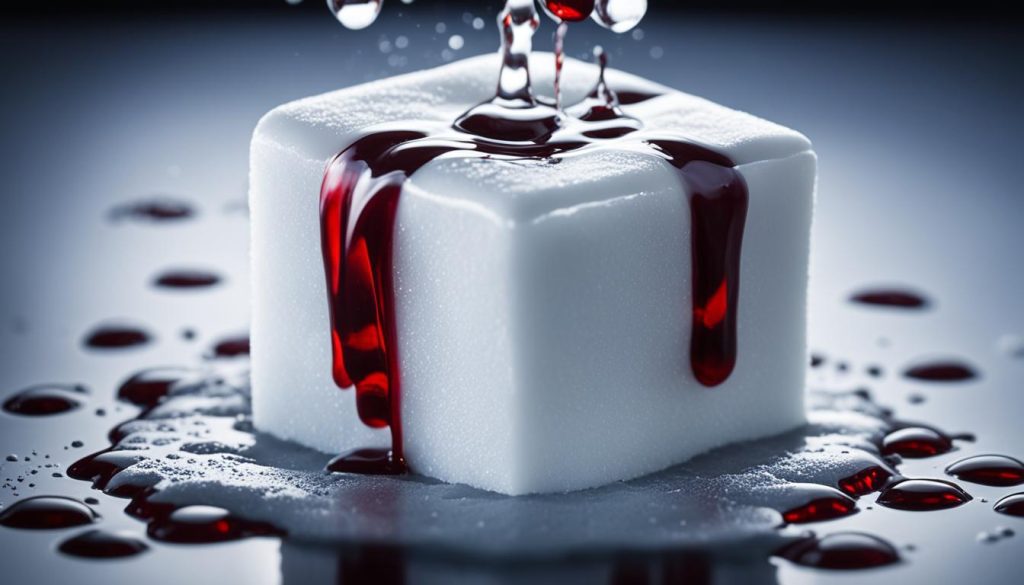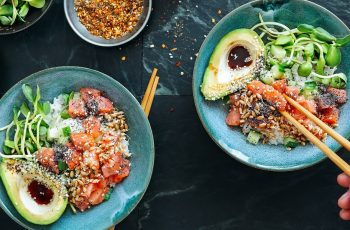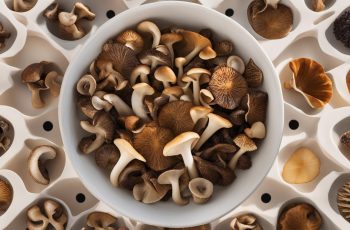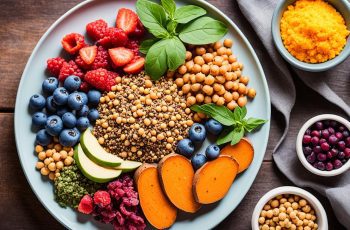High blood pressure, also known as hypertension, is a common condition that increases the risk of heart attacks, strokes, and other serious health issues. It is important to manage high blood pressure through lifestyle changes, including a healthy diet. Certain foods can significantly elevate blood pressure and should be avoided by individuals with hypertension. These foods include deep-fried foods, saturated fats, red meat, sugar, and high-sodium foods. By understanding these worst foods for high blood pressure, individuals can make informed choices to control their hypertension and improve their overall health.
Worst Foods for High Blood Pressure
- Deep-fried foods such as fried wings, French fries, and potato chips should be avoided to maintain healthy blood pressure levels.
- Saturated fats found in desserts and full-fat dairy products can contribute to elevated blood pressure. Opt for healthier fats like those found in fish, walnuts, and flaxseeds.
- Excessive red meat consumption, including beef and pork, is associated with an increased risk of high blood pressure.
- Added sugar, especially in prepackaged meals and sugary drinks, can significantly raise blood pressure levels. Reduce the intake of sugary foods and beverages.
- High sodium foods, such as canned soups and potato chips, should be limited to effectively manage and control blood pressure levels.
Managing high blood pressure requires making informed dietary choices and lifestyle changes. By avoiding or limiting the consumption of the worst foods for high blood pressure, individuals can effectively control their hypertension and improve their overall health. It is important to work with healthcare professionals and nutritionists to develop a personalized hypertension diet plan that suits individual needs. Through a combination of a healthy diet, regular exercise, and other lifestyle modifications, individuals can take control of their blood pressure and lead a healthier life.
Deep-Fried Foods and Hypertension
When it comes to maintaining healthy blood pressure levels, it’s crucial to pay attention to our diet choices. One type of food that poses a significant risk to our blood pressure is deep-fried foods. Whether it’s crispy French fries or indulgent fried chicken wings, these tasty treats can have detrimental effects on our cardiovascular health.
Studies have shown that frequent consumption of deep-fried foods can increase the risk of developing high blood pressure. In addition, these foods have been linked to conditions such as type II diabetes, obesity, hypertension, and even heart failure. It’s clear that indulging in deep-fried foods on a regular basis can have serious consequences for our overall health.
To maintain healthy blood pressure levels, it’s important to avoid or limit the intake of deep-fried foods. Instead, we should focus on healthier cooking methods such as grilling, baking, or steaming. By making this simple change, we can protect our cardiovascular health and reduce the risk of developing hypertension.
Specifically, it’s crucial to steer clear of fried wings, French fries, and potato chips. These popular deep-fried snacks are often loaded with unhealthy fats and excessive sodium, both of which can contribute to high blood pressure. By opting for healthier alternatives or enjoying these foods in moderation, we can better manage our blood pressure and support our overall well-being.
So next time you’re craving that crispy, golden goodness, remember that deep-fried foods and hypertension are not a healthy combination. Prioritize your cardiovascular health by making conscious choices that align with a balanced and nutritious diet.
Saturated Fats and Blood Pressure
Saturated fats are commonly found in desserts and full-fat dairy products. These fats can contribute to elevated blood pressure levels, increasing the risk of developing hypertension. To support healthy blood pressure, it is crucial to reduce the consumption of saturated fats and opt for healthier alternatives.
Research suggests that diets rich in polyunsaturated fats can help prevent blood pressure elevation. Incorporating foods such as fish, walnuts, flaxseeds, and sunflower seeds into your diet can help maintain healthy blood pressure levels. These sources of polyunsaturated fats provide essential nutrients and promote cardiovascular health.
To make healthier choices, I recommend limiting desserts that are high in saturated fats. Consider indulging in healthier dessert options such as fresh fruit or yogurt parfaits made with low-fat dairy or plant-based alternatives. Additionally, opt for low-fat or fat-free dairy products to reduce your saturated fat intake.
Red Meat and its Impact on Hypertension
While red meat is a good source of essential nutrients, its excessive consumption can have negative effects on individuals with high blood pressure. Numerous studies have shown a clear association between regular red meat consumption and an increased risk of hypertension. For instance, a study found that for every additional 100 grams of red meat consumed per day, there was a 14% increased risk of high blood pressure.
To maintain healthy blood pressure levels, it is advisable to limit the intake of red meat, including beef and pork. By reducing red meat consumption, individuals can decrease their risk of developing or exacerbating high blood pressure. Instead, they can choose leaner alternatives such as chicken, turkey, or fish, which are lower in saturated fats and can help support better cardiovascular health.
In addition to its impact on blood pressure, red meat is often associated with fast food consumption, which can further contribute to an unhealthy diet. Fast food meals, often high in sodium, saturated fats, and added sugars, can have detrimental effects on blood pressure levels. It’s important to recognize the link between high blood pressure and fast food consumption, and make conscious choices to reduce or avoid these foods when managing hypertension.
Considering the multiple factors involved in maintaining healthy blood pressure levels, it is crucial to adopt a well-rounded approach to diet and lifestyle. While red meat can be included in moderation as part of a balanced diet, it is essential to prioritize whole grains, fruits, vegetables, and lean proteins as the foundation of a hypertension-friendly eating plan. By making dietary choices that support heart health, individuals can better manage their blood pressure and reduce the risk of other associated health complications.
Sugar and its Effects on Blood Pressure
Added sugar, particularly fructose, has been linked to various negative effects on our health, including an increased heart rate, inflammation, insulin resistance, and elevated blood pressure. Studies have shown that consuming sugary drinks and foods, such as prepackaged meals, can significantly contribute to the risk of high blood pressure, especially in older women.
Excessive consumption of added sugars can lead to weight gain, obesity, and other metabolic disorders, which can further worsen blood pressure levels. It is crucial to reduce the consumption of sugary foods and beverages to maintain healthy blood pressure levels and overall well-being.
Instead of indulging in sugary drinks and prepackaged meals, opt for healthier alternatives. Choose water or unsweetened beverages, such as herbal tea, instead of sugary sodas or fruit juices. Focus on consuming fresh, whole foods that are naturally low in sugar, such as fruits, vegetables, lean proteins, and whole grains.
By making simple changes to your diet and reducing your intake of added sugars, you can help lower your risk of high blood pressure and contribute to better overall health.

Remember, moderation is key when it comes to sugar consumption. Pay attention to nutrition labels and be mindful of hidden sugars in processed foods. By making conscious choices and prioritizing your health, you can effectively manage your blood pressure and reduce the risk of developing hypertension.
Salt Intake and High Blood Pressure
High intakes of both salt and sugar have been found to directly increase high blood pressure. While reducing sugar consumption is crucial, it is equally important to manage salt intake to maintain healthy blood pressure levels.
Excessive salt intake can lead to an elevation in both systolic and diastolic blood pressure, putting strain on the cardiovascular system and increasing the risk of hypertension-related complications.
To effectively manage and control blood pressure levels, it is recommended to limit the consumption of high sodium foods. Some high sodium foods to avoid include canned soups, which often contain high levels of salt as a preservative, and potato chips, known for their high sodium content. Additionally, it is important to reduce the intake of salty snacks, such as pretzels and processed snacks, which can contribute to increased blood pressure.
By making conscious choices to reduce salt intake and avoid high sodium foods, individuals can play an active role in managing their blood pressure and promoting overall cardiovascular health.
Unhealthy Diet and Other Lifestyle Factors
While maintaining a healthy diet is crucial in managing high blood pressure, it is important to understand that an unhealthy diet is not the sole cause of hypertension. Other factors such as age, family history, stress, medication, and underlying health conditions can also contribute to elevated blood pressure levels. Therefore, adopting a holistic approach that includes lifestyle changes is essential in lowering and preventing high blood pressure.
One lifestyle change that can have a significant impact on blood pressure is quitting smoking. Smoking increases blood pressure and damages blood vessels, putting individuals at a higher risk of hypertension and other cardiovascular diseases. By quitting smoking, individuals can greatly improve their blood pressure and overall health.
Regular exercise is another key component in maintaining healthy blood pressure levels. Engaging in physical activities such as walking, jogging, swimming, or cycling for at least 30 minutes a day can help lower blood pressure. Exercise not only strengthens the heart and improves blood flow but also helps in maintaining a healthy body weight, reducing the risk of developing hypertension.
Reducing alcohol consumption is also important in managing high blood pressure. Excessive alcohol intake can raise blood pressure and contribute to other health problems. By moderating alcohol consumption or eliminating it altogether, individuals can support their efforts in maintaining optimal blood pressure levels.
In addition to alcohol, it is advisable to reduce caffeine intake. Caffeine is a stimulant that can temporarily elevate blood pressure and increase heart rate. Although the long-term effects of caffeine on blood pressure are still being studied, it is recommended to limit caffeine consumption, especially for individuals with hypertension.
An unhealthy diet is one of the contributing factors to high blood pressure, but lifestyle changes play a crucial role in managing and preventing hypertension. By quitting smoking, engaging in regular exercise, and reducing alcohol and caffeine consumption, individuals can complement their efforts in lowering blood pressure levels and improving overall health.

Conclusion
Managing high blood pressure requires making informed dietary choices and lifestyle changes. By avoiding or limiting the consumption of the worst foods for high blood pressure, individuals can effectively control their hypertension and improve their overall health.
Working closely with healthcare professionals and nutritionists is crucial in developing a personalized hypertension diet plan that suits individual needs. This can ensure that dietary changes are made in a safe and sustainable manner.
In addition to a healthy diet, regular exercise and other lifestyle modifications play a significant role in managing high blood pressure. Incorporating physical activity into daily routines, along with reducing alcohol and caffeine intake, can further support blood pressure control.
By taking control of their blood pressure through a combination of a healthy diet, regular exercise, and other lifestyle modifications, individuals can lead a healthier life and reduce their risk of complications associated with high blood pressure. It is important to prioritize blood pressure management and work towards achieving optimal health with the guidance of healthcare professionals.
FAQ
What are the worst foods for high blood pressure?
The worst foods for high blood pressure include deep-fried foods, saturated fats, red meat, sugar, and high-sodium foods. These foods can significantly elevate blood pressure levels and should be avoided or limited by individuals with hypertension.
Why should I avoid deep-fried foods if I have high blood pressure?
Deep-fried foods like fried wings, French fries, and potato chips are associated with an increased risk of developing high blood pressure. Frequent consumption of these foods can lead to conditions like obesity, type II diabetes, hypertension, and heart failure.
How do saturated fats affect blood pressure?
Diets high in saturated fats, commonly found in desserts and full-fat dairy products, can contribute to elevated blood pressure. It is advisable to limit the consumption of saturated fats and opt for healthier fats from sources like fish, walnuts, flaxseeds, and sunflower seeds to support healthy blood pressure.
Is red meat bad for individuals with high blood pressure?
Excessive consumption of red meat, including beef and pork, has been associated with an increased risk of hypertension. Regular red meat consumption is believed to contribute to high blood pressure. Limiting the intake of red meat is recommended to maintain healthy blood pressure levels.
Is sugar linked to high blood pressure?
Added sugar, particularly fructose, has been linked to increased heart rate, inflammation, insulin resistance, and elevated blood pressure. Consuming sugary drinks and foods, such as prepackaged meals, can increase the risk of high blood pressure. It is important to reduce the consumption of sugary foods and beverages to maintain healthy blood pressure levels.
How does salt intake affect blood pressure?
High intakes of salt can directly increase blood pressure. Excessive salt intake can elevate both systolic and diastolic blood pressure. It is recommended to limit the consumption of high-sodium foods, such as canned soups, potato chips, and salty snacks, to effectively manage and control blood pressure levels.
Are there other lifestyle factors that contribute to high blood pressure?
Yes, an unhealthy diet is not the sole cause of high blood pressure. Other lifestyle factors such as age, family history, stress, medication, and other health conditions can also contribute to hypertension. Lifestyle changes like quitting smoking, regular exercise, and reducing alcohol and caffeine intake can complement a healthy diet in lowering blood pressure levels.
How can I effectively manage high blood pressure?
Managing high blood pressure requires making informed dietary choices and lifestyle changes. By avoiding or limiting the consumption of worst foods for high blood pressure and adopting a healthy diet, regular exercise, and other lifestyle modifications, individuals can effectively control their hypertension and improve their overall health.




